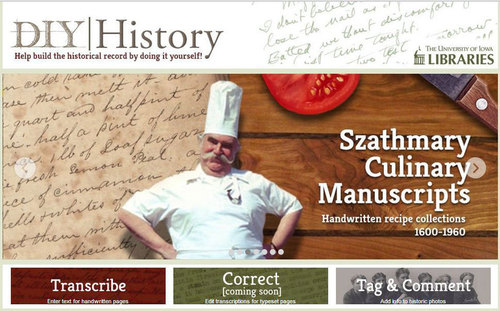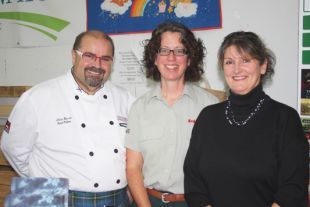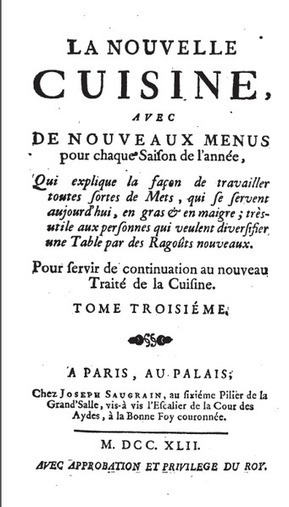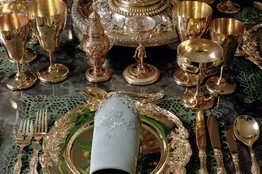See on Scoop.it – Historical gastronomy

Calves head hash, dandelion wine, election cake, and West Indies-dressed turtle are just a few of the recipes from the University of Iowa Libraries’ new Szathmary Culinary Manuscripts and Cookbooks digital collection: http://digital.lib.uiowa.edu/cookbooks. Containing thousands of pages and spanning the 1600s through the 1960s, the handwritten cookbooks document culinary history in America and Europe, and how tastes have changed over the years. The do-it-yourself spirit of the housewives, cooks, winemakers, and Girl Scouts who wrote out and compiled the recipes makes the Szathmary collection an appropriate choice to help launch DIY History – http://diyhistory.lib.uiowa.edu – the Libraries’ new initiative that lets users contribute to the historical record by transcribing and tagging primary source documents online. http://diyhistory.lib.uiowa.edu
See on blog.lib.uiowa.edu




